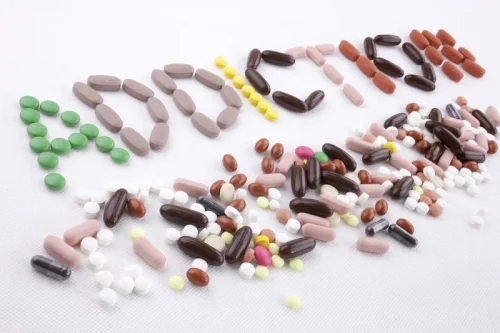
Depending on the rehab or treatment center this may be done through a traditional medication and guided support approach, through a more spiritual approach, or a combination of both. Much of the confusion arises due to the widely known practice of inpatient rehabilitation or “short-term residential treatment” where patients undergo rehab treatment in an in-house, residence-type facility. In particular, sober living and halfway houses can help somebody maintain recovery by providing a safe, sober environment. Learn more about recovery housing, such as sober living homes, and how it can benefit you on your journey to recovery. A sober house, also known as a sober living home, is a residential facility designed to provide a safe and supportive environment for individuals in recovery from substance abuse.
- Morgan is a mental health counselor who works alongside individuals of all backgrounds struggling with eating disorders.
- This shared understanding creates a unique bond and a sense of empathy among residents.
- Some sober houses provide forms of peer-led counseling or promotion of 12-step programs as favored by organizations such as Alcoholics Anonymous.
- Some sober-living homes have a base rate with additional costs for added services.
What are the Rules and Regulations of Sober Living Homes?
The residential facility is typically part of the continuum of care for an overseeing rehab institution. All types of residences and occupancy numbers can be found at this level, depending on the program. Average stays vary from several weeks to several months, depending on the acuity of the individual.
Stress Management in Recovery: Tips You Can’t Afford to Miss

The history of sober living homes parallels the evolution of community-based recovery programs, providing an alternative to the isolation many face post-rehabilitation. These sober living homes enforce rules such as regular drug screenings and participation in house meetings, which are fundamental to maintaining a safe and supportive recovery community. By choosing the appropriate level, residents can find a balance of independence and support that best suits their recovery journey, ensuring a smoother transition towards a sober, stable lifestyle. This type of housing residence provides a supportive, structured environment where individuals recovering from substance use disorders can continue to heal while reintegrating into everyday life. American Addiction Centers offers two sober living programs at the Oxford Treatment Center in Mississippi and the Greenhouse Treatment Center in Texas.
Should I go to a sober living house or residential rehabilitation for my addiction?
Sober living and rehab are vital components of ending addiction and initiating recovery. Detox and rehab begin the recovery process and extend over periods lasting up to 90 days. Detox rids the body of the toxic substance(s) while addressing withdrawal symptoms through a medically monitored process.
What is a Halfway House?
- After completing his inpatient treatment, John found the structured yet supportive environment crucial for his recovery.
- Residents contribute to house chores, attend meetings, and remain accountable for their actions.
- Sober living, also known as a sober living home or transitional housing, is a supportive living environment that provides a structured, alcohol- and drug-free setting for individuals in recovery.
- Find rehab for yourself or a loved one by speaking with a treatment provider.
- Anyone who wants to stop drinking alcohol or using drugs should consider joining a sober living community.
The number of residents depends on the size of the home or licensed beds in a facility. In most sober-living environments, bedrooms are shared, but some do provide individual rooms. Typically, there are rules about shared living spaces and individual room maintenance and chores, visitor hours, meal times, curfews and Twelve Step meeting requirements. Also like other sober-living environments, halfway houses generally have systems in place to keep residents sober, and drugs tests are usually administered to monitor for any substance use. They also often come with additional mental health, medical, recovery or educational services that help people get accustomed to their new lives.
At first glance, it’s obvious that both of these drug rehabilitation facilities are semi-similar. But, if you take https://ecosoberhouse.com/article/you-are-not-powerless-over-alcohol-and-heres-why/ a close look, you will quickly notice that sober living communities vs drug rehabs are slightly different. One of the main differences between sober living centers and residential treatment centers is sober living homes offer limited intensive therapy and medical services. The main focus of a sober living house is to provide a supportive environment for individuals as they begin to construct what they want their lives to look like without their addiction. Sober homes provide the necessary bridge between the structured environment of addiction treatment centers and independent living. They offer a supportive community where individuals can practice their recovery skills while gradually reintegrating into society.


Halfway houses and sober living homes are living arrangements that provide a home environment free of alcohol or drug use. People often use the names “sober living” vs “halfway house” interchangeably. However, these two types of residences provide different supports based on your recovery needs. Sober living provides a safe, clean, drug and alcohol free alternative to living at home or on the streets.
Betty Ford Center in Rancho Mirage
- Some are on the campus where drug and alcohol addiction treatment is provided, and others are independent homes, apartments or condos.
- Two of the main options after rehabilitation are sober living and residential treatment.
- These are typically located in single-family homes in stable communities whose residents hold each other accountable and promise to not use drugs or alcohol.
- Sober living opportunities can offer community benefits that complement occupational, recreational, and educational goals.
Many homes use democratic processes to address grievances and conflicts, allowing residents to have a voice in resolutions. In severe cases, it might lead to mediation involving external counselors or, rarely, eviction if the conflict threatens the safety and well-being of other residents. Oxford Houses were established in 1975 to provide a community-based recovery environment for individuals seeking sobriety from drug and alcohol addiction. The cost of living in halfway houses can vary widely based on location, funding sources, and the services provided. Some are funded by governmental bodies, potentially reducing the cost for residents, while others may require residents to pay rent or Sobriety share in the costs of living.
Keep reading our side by side drug rehab vs sober living comparison review, to find out everything you need to know about sober house vs rehab both of these substance abuse treatment facilities. For people in recovery, finding the right type of support is a critical part of remaining sober. We offer residential and sober living treatment programs to provide comprehensive recovery options. One of the most challenging times for someone recovering from drug or alcohol addiction is when they leave a residential treatment center and head back to their daily life.
hgh bivirkninger
References:
https://glk-egoza.ru/user/rockettimer6/
Peptides are on the forefront of scientific and health developments, and BPC 157 is doubtless one
of the leaders of such development. Peptide.ltd, a manufacturer of GMP-grade peptides, offers top quality, research-grade peptides which
are produced under strict guidelines to ensure quality, safety, and outcomes,
making them dependable for analysis throughout the world.
Background Dive into the world of BPC-157, an artificial peptide with an intriguing scientific backstory.
You could be questioning, “What’s a peptide?” It Is a short chain of amino
acids, the constructing blocks that make up proteins in your physique.
Some of probably the most notable are their anti-inflammatory properties, cardioprotective effects, and significant regenerative potential.
Now you realize intimately all of the differences between these two
very potent and helpful peptides. All that is still is to choose the remedy that’s finest for you
in consultation together with your physician.
Whether it’s muscle tears, tendon strains, or nagging accidents, BPC-157
is being explored as a go-to for quicker bounce-back.
Some studies additionally counsel it might play a role in mind well being and overall wellness.
With rising research behind it, BPC-157 is becoming the top choice for individuals
seeking to improve their body’s natural restore system. BPC 157 is an artificial peptide derived from protective
mechanisms in the physique, known for regenerative
properties. It helps tissue repair, reduces inflammation, and may aid
gut/joint health.
It remains essential for researchers to conduct additional investigations and correctly designed trials to validate these preliminary observations before
drawing definitive conclusions. The present state of research on BPC 157 highlights its potential therapeutic purposes,
but in addition underscores the necessity for intensive scientific trials to ascertain its safety
and efficacy. Most research carried out up to now have been preclinical,
using animal fashions to discover the peptide’s results.
These research have proven promising outcomes, however the transition to
human applications requires rigorous medical trials.
BPC-157’s affect on immune system perform is an thrilling
space of ongoing analysis. Its well-documented anti-inflammatory results and talent to promote therapeutic
counsel that BPC-157 might have a beneficial impact on immune well being, notably in conditions corresponding to inflammatory bowel disease (IBD)
and ulcerative colitis. By decreasing inflammation and supporting
tissue repair, BPC-157 could help improve
immune system function and total well-being.
Investigations purport that BPC-157 could contribute to tissue regeneration by way of interactions with
mobile signaling cascades linked to progress and repair.
Some research indicates that it would facilitate fibroblast
exercise, which is important for collagen synthesis and extracellular matrix formation. This may indicate a role in wound therapeutic models the place structural restoration is critical.
Animal models of ligament, tendon, and bone damage recommend that BPC-157 has substantial optimistic
advantages. Research of therapeutic tissues show increased ranges of bFGF, EGF, and VEGF following the administration of
BPC-157. This means that BPC-157 either immediately or not directly raises hormone and progress issue ranges
which might be required to guide cells to the positioning
of injury.
This is but to be absolutely understood as future human trials are on their means.
BPC 157 originates naturally in the physique,
deriving from human gastric juice, and has been the topic of quite a few research for its
healing & protecting properties. The peptide has been closely
researched for every kind of benefits as it primarily impacts the tendons, muscular
tissues, nervous system, and ligaments. BPC-157 is a promising peptide with robust regenerative, anti-inflammatory,
and neuroprotective properties. Whereas it
isn’t yet FDA-approved, early analysis and anecdotal proof counsel significant BPC-157 advantages for injury
recovery, gut health, and overall wellness.
From aiding harm recovery to supporting digestive well being, BPC-157’s versatility is unmatched.
A Lot of the analysis on BPC-157 so far has been accomplished
in laboratory animals, but researchers are actually utilizing the findings thus far to assist direct additional analysis into the ways BPC-157 may be
helpful for human topics. Athletes and fitness enthusiasts regularly
leverage BPC-157 to bolster muscle recuperation submit strenuous exercises, as it aids in the restoration of
impaired muscle fibers and the facilitation of comprehensive muscle improvement.
Its capability to fortify joint health renders it a well-liked selection for these in search of to preserve joint flexibility and mobility all through the aging course of.
The mechanism of action is based totally on growing the level
of anti-inflammatory cytokines (IL-4, IL-10) while lowering the invasion of
pro-inflammatory cytokines (IL-6, IL-1β, TNF-α).
With that being said, let’s dive right into the different administration methods, dosage,
and range for BPC 157. There are a number of methods to take
BPC 156 — each varies in the quantity of dosing and effectiveness.
Amongst probably the most talked-about peptides is Physique Safety
Compound 157 (BPC-157), a synthetic peptide derived from a protein present in human gastric
juice. BPC-157 has captured the eye of medical professionals and researchers due
to its remarkable therapeutic effects observed in animal studies, particularly within the gastrointestinal tract, tendons,
and ligaments. BPC 157, a pentadecapeptide
derived from human gastric juice, has been demonstrated to promote the therapeutic of different tissues,
together with skin, muscle, bone, ligament and tendon in lots of animal research.
The present study aimed to explore the impact of BPC 157 on tendon fibroblasts isolated from Achilles tendon of male Sprague-Dawley rat.
From the end result of cDNA microarray evaluation, development hormone receptor was revealed as some of the abundantly up-regulated genes in tendon fibroblasts by BPC 157.
Uncover the potential benefits, methods of administration, regulatory standing,
and extra. BPC-157 has additionally been applied topically in a quantity of
animal studies into its wound-healing capabilities.
Though research on intranasal administration of BPC-157 is extraordinarily restricted,
broad research on the potential advantages of intranasally administered
peptide therapeutics recommend that this could be a beneficial
RoA [11, 12].
Angiogenesis can be a double-edged sword, as
tumors additionally need blood vessels to grow. However, BPC-157’s position is extra about supporting restoration and therapeutic after most
cancers remedies like chemotherapy or radiation. It promotes the repair of broken tissues,
which may forestall cancerous growths from forming.
References:
valley
dosage of hgh
References:
wehrle
hgh dosierung fettverbrennung
References:
wehrle
dangers of anabolic steroids
References:
use of steroid (git.tbaer.de)
Цитаты про путь. Цитаты на день рождения. Хорошего дня в прозе своими словами. Цитаты гете. Цитаты это. Цитаты миллионеров. Цитаты люди меняются. Мудрые слова знаменитых людей. Цитаты про жизнь из книг.
youtube 3702
youtube 8969